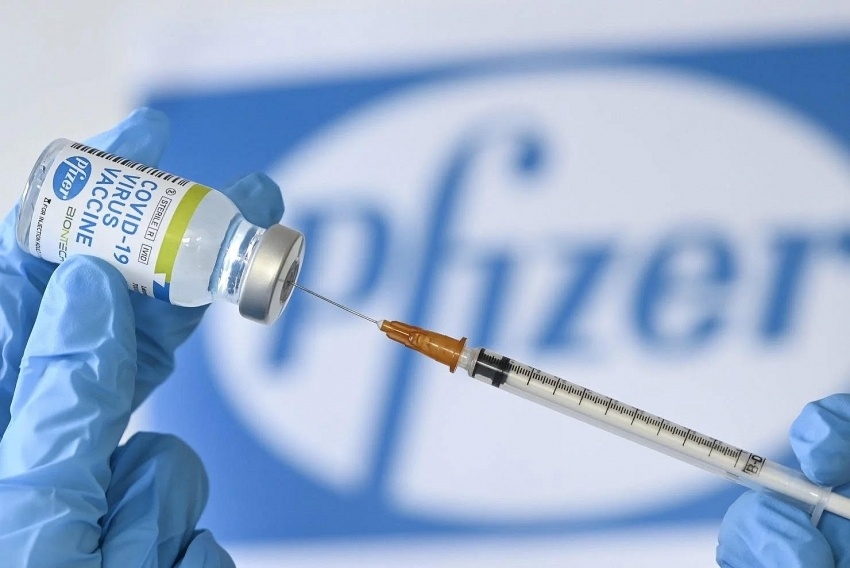Pfizer focused on expanding vaccine capabilities
 |
| Pfizer focused on expanding vaccine capabilities |
Pfizer and BioNTech are leveraging an extensive network of owned and operated manufacturing sites to produce Comirnaty – a vaccine jointly developed to cater to the current emergency response scenario.
A representative of Pfizer told VIR, “We’re also continuing to expand and enhance manufacturing capabilities and processes, which includes bringing on additional Pfizer/BioNTech sites and contract manufacturers around the world to produce the vaccine.”
Both companies have operational facilities in the US and Europe supporting the Comirnaty global supply chain.
To date, the pair have delivered more than 3.1 billion doses of its vaccine to 172 countries and territories, including 27 countries in Asia-Pacific. It expects to manufacture an additional four billion doses in 2022.
In Vietnam specifically, Pfizer and Moderna are the main COVID-19 vaccines. The country has received nearly 77 million doses of the vaccine as of end-2021, the highest amount among the six approved vaccines. Currently, Vietnam is working with Pfizer to bring vaccines for children aged 5-11.
The wide consumption has resulted in bumper sales for Pfizer. Its 2021 profits doubled to $22 billion on strong vaccine sales. The drugmaker increased its 2022 estimate for Comirnaty sales to $32 billion and expects oral antiviral treatment Paxlovid to contribute $22 billion in revenues.
Such figures, however, have prompted accusations from campaigners of pandemic profiteering. The group Global Justice Now said the annual revenues of $81 billion was more than the GDP of most countries and accused Pfizer of “ripping off public health systems”.
“mRNA vaccines should have revolutionised the global response, but Pfizer is withholding this essential medical innovation from the world, ripping public health systems off for an eye-watering mark-up,” stated Tim Bierley, a Global Justice Now campaigner.
The representative of Pfizer explained to VIR that Pfizer follows the World Bank classifications based on 2018 and 2019 World Bank GNI data. “We are deploying a pricing structure for high, middle, and lower-income countries. High and middle-income countries will pay more than low-income countries, but at a value that is significantly discounted from our normal benchmarks during the pandemic. Low and lower middle-income countries will pay a not-for-profit price.”
When being asked by VIR about the possibility of sharing the recipe for COVID-19 vaccines, the representative said it is expanding and enhancing manufacturing capabilities and processes. To accelerate its efforts to reach vulnerable populations, it has pledged to provide two billion doses of COVID-19 vaccines to low- and middle-income countries in 2021 and 2022. As of February 27, 2022, they have now delivered more than 1.26 billion doses to 103 low- and middle-income countries towards this pledge.
“Since the beginning of this pandemic, Pfizer’s priority has been to ensure rapid manufacturing and deployment of the COVID-19 vaccine to cater to the current emergency response scenario. We are also mindful of the unique mRNA technology that is being utilised in this vaccine,” the representative added. “Once the pandemic supply phase is over and we enter a phase of regular supplies, Pfizer will evaluate all additional opportunities available.”
In fact, Pfizer invested more than $2 billion at risk in its vaccine development programme – with $500 million of that spent on scaling up manufacturing capabilities, before it knew the results of clinical trials.
This is not the first time global campaigners have made such accusations. In 2021, campaigners from the People’s Vaccine Alliance – whose members include Global Justice Now, Oxfam, and others – noted that at least nine people have become new billionaires since the beginning of the pandemic, thanks to the excessive profits pharmaceutical corporations with monopolies on vaccines are making.
Earlier in 2020, Oxfam also announced that vaccinating the poorest half of humanity – 3.7 billion people - against coronavirus could cost less than the 10 biggest pharmaceutical companies make in four months. The agency urged governments and pharmaceutical companies to guarantee that vaccines, tests, and treatments would be patent-free and equitably distributed to all nations and people, ahead of the World Health Assembly in Geneva in May of that year.
What the stars mean:
★ Poor ★ ★ Promising ★★★ Good ★★★★ Very good ★★★★★ Exceptional
Themes: Healthcare Platform
- Opella and Long Chau join forces to enhance digestive and bone health
- Hanoi intensifies airport monitoring amid Nipah disease risks
- Cosmetics rules set for overhaul under draft decree
- Policy obstacles being addressed in drug licensing and renewal
- Sanofi, Long Chau Pharmacy relaunch medicine blister pack collection initiative
Related Contents
Latest News
More News
- A golden time to shine within ASEAN (February 19, 2026 | 20:22)
- Vietnam’s pivotal year for advancing sustainability (February 19, 2026 | 08:44)
- Strengthening the core role of industry and trade (February 19, 2026 | 08:35)
- Future orientations for healthcare improvements (February 19, 2026 | 08:29)
- Infrastructure orientations suitable for a new chapter (February 19, 2026 | 08:15)
- Innovation breakthroughs that can elevate the nation (February 19, 2026 | 08:08)
- ABB Robotics hosts SOMA Value Provider Conference in Vietnam (February 19, 2026 | 08:00)
- Entire financial sector steps firmly into a new spring (February 17, 2026 | 13:40)
- Digital security fundamental for better and faster decision-making (February 13, 2026 | 10:50)
- Aircraft makers urge out-the-box thinking (February 13, 2026 | 10:39)

 Tag:
Tag:

















 Mobile Version
Mobile Version